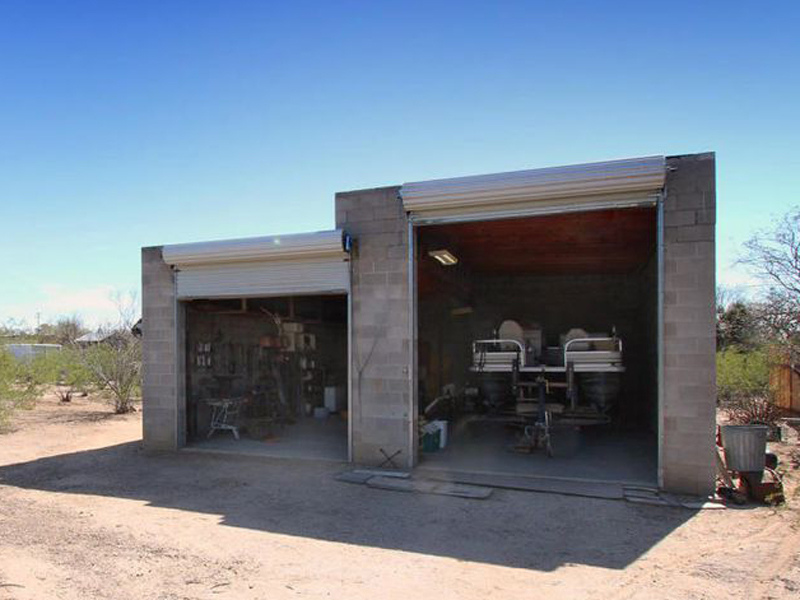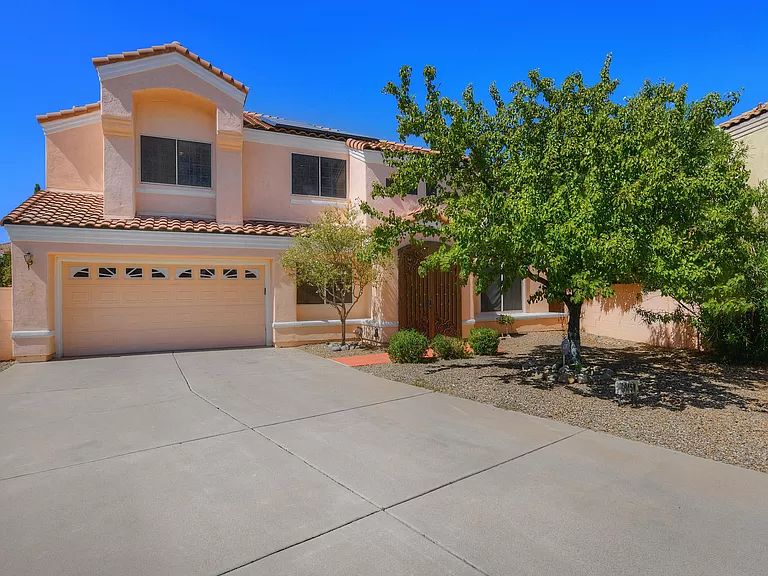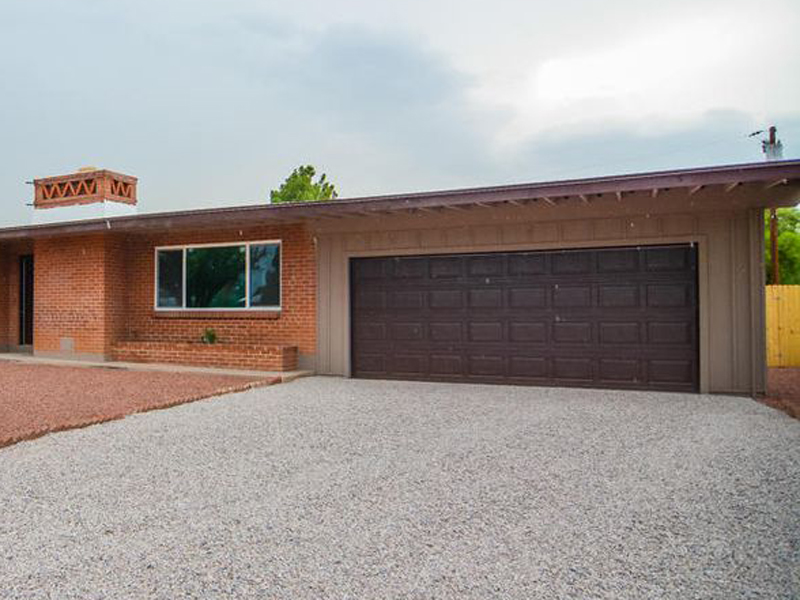My Garage Door Will Not Function - Rapid Repair Work Solutions
Is Your Garage Door Stuck? Below's What to Do Very first
When your garage door will not open, begin with these essential safety checks prior to attempting any kind of repairs. First, make sure nobody is standing near the door which automobiles are free from the opening. Try to find apparent signs of damages like damaged panels, bent tracks, or hanging wires. If you see a snapped springtime or significantly harmed elements, quit quickly and call a professional—-- these fixings need specialized devices and knowledge to manage safely.

Check These 6 Points Prior To Calling an Expert
Before assuming you require costly repair services, run through this quick diagnostic list that fixes most garage door issues:
-
Power source: Validate the opener is connected in and the electrical outlet is functioning
-
Remote batteries: Change dead batteries in your push-button control
-
Hand-operated lock: Examine if a person mistakenly engaged the hand-operated lock
-
Obstructions: Look for debris blocking the door's path or sensors
-
Emergency launch: Ensure the red emergency situation cord hasn't been drawn
-
Breaker: Validate the garage circuit hasn't tripped
These simple checks settle approximately 70% of garage door concerns without requiring specialist treatment.
10 Typical Reasons Your Garage Door Will Not Open Up
Understanding why your garage door opener isn't functioning helps you choose the best service. Here are the most frequent causes house owners experience:
Dead remote batteries represent the most basic repair—-- when batteries die, the remote can't send signals to the opener. Power interruptions or stumbled breakers cut power to the electric motor. Busted springs stop the door from raising correctly and call for immediate expert interest. Sensor imbalance reasons safety and security systems to block door operation. Track obstructions stop rollers from moving smoothly. Electric motor overload triggers automated shutoffs when the opener detects resistance. Limitation button issues confuse the opener regarding door setting. Cable television damages interferes with the training system. Weather-related problems affect door motion throughout severe temperature levels. Part wear from age progressively reduces system performance.
Trouble # 1: Dead Push-button Control Batteries
When your wall surface button works but your remote does not, dead batteries are usually the perpetrator. A lot of garage door remotes make use of either 3-volt lithium or 12-volt alkaline batteries. Eliminate the back cover of your remote and check the battery kind. Replace with fresh batteries and examine the remote. If it still doesn't work, you may need to reprogram it to your opener. Consult your opener's guidebook for certain reprogramming instructions, as the process varies by producer.
Trouble # 2: Power Supply Issues
Garage door power troubles usually originate from loose connections or tripped circuits. Check that the opener is strongly linked into its electrical outlet—-- resonance can loosen up connections with time. Examine the outlet with another tool to confirm it's functioning. Examine your home's breaker box for tripped circuits, particularly if you have actually experienced tornados or power fluctuations. GFCI electrical outlets might have stumbled and need resetting. If the opener has power however won't respond, the concern most likely lies somewhere else in the system.
Problem # 3: Broken or Damaged Springs
Damaged garage door springtimes are amongst one of the most dangerous parts to deal with. If you hear a loud bang from your garage or see the door really feels very hefty when attempting to raise manually, a spring has most likely broken. Torsion springtimes run flat above the door, while expansion springs sit on either side. Never ever try springtime repair services yourself—-- these components keep significant stress that can trigger severe injury or death. Expert substitute commonly sets you back $150-$300 however guarantees your security.
Issue # 4: Obstructed Security Sensing Units
Modern garage doors include safety sensors that avoid closure when objects are detected. These sensors can stop the door from opening up if they're dirty, misaligned, or obstructed by debris. Tidy sensor lenses with a soft towel and ensure absolutely nothing obstructs the unnoticeable beam of light in between them. Examine that sensing units are correctly aligned—-- many have sign lights that reveal connection status. Sensor issues best garage door opener repair service options often fix with straightforward cleansing and adjustment.
Problem # 5: Track Obstructions or Damage
Garage door tracks guide rollers as the door moves up and down. Dust, particles, old grease, or tiny items can jam the system. Examine tracks visually and eliminate any kind of obstructions with a brush or cloth. Look for dents, flexes, or warping that can restrain smooth procedure. Small track adjustments are possible for convenient property owners, however considerable damages requires expert repair to stop more problems or safety threats.
Problem # 6: Garage Door Opener Electric Motor Issues
When the garage door motor runs yet the door does not move, a number of issues could be liable. The electric motor may be overloaded and turning off as a precaution. Gear wear, especially in older devices, can protect against proper operation. Chain or belt drive problems affect power transmission. If you hear unusual grinding, clicking, or humming noises, stop using the opener right away. Motor repairs usually set you back greater than substitute, particularly for systems over 10 years old.
Detailed DIY Troubleshooting Guide
Follow this systematic strategy to garage door troubleshooting while prioritizing safety and security throughout the process:
Step 1: Evaluate the wall surface switch initially. If it functions but the remote doesn't, focus on remote concerns. If neither works, check power supply.
Step 2: Check out the hand-operated release cord. If it's been pulled, the opener is disengaged from the door. Press the trolley back to reconnect.
Step 3: Manually evaluate the door by disengaging the opener and trying to raise the door by hand. It needs to move smoothly and stay in area when half-open.
Step 4: Check noticeable elements for damages, paying unique attention to springtimes, cables, and tracks.
Step 5: Check all safety and security attributes including sensing units, limit switches, and auto-reverse functions.
Action 6: Test various controls (remote, wall switch, keypad) to separate the issue resource.
Constantly wear shatterproof glass and work gloves when executing examinations, and never ever attempt fixings on springtimes or high-tension elements.
When to Call an Expert vs. DIY Solutions

Knowing when to call a garage door expert versus attempting do it yourself repair work safeguards both your security and your budget. Manage these concerns on your own: dead remote batteries, power supply troubles, minor track cleaning, sensor cleansing and placement, and fundamental lubrication.
Never attempt these fixings on your own: spring replacement or adjustment, cable repairs, major track adjustment, electric wiring issues, opener motor replacement, or any kind of fixing involving high-tension elements. Specialist professionals have specialized tools, training, and insurance coverage to take care of harmful repair services securely.
Take into consideration repair service costs versus substitute costs, especially for doors over 15 years old. Modern garage doors supply better security functions, power efficiency, and reliability than older models.
Emergency Situation Garage Door Solutions
When you're stuck with a garage door that won't open up and require immediate access, adhere to these emergency procedures:
Handbook Operation: Pull the red emergency situation release cord to disengage the opener. This allows manual procedure however requires appropriate method to stay clear of injury. Raise the door gradually and equally, making use of leg muscle mass as opposed to your back. Many household doors consider 100-150 extra pounds, making them workable for many grownups.
Short-lived Fixes: If the door opens up by hand however won't keep up, prop it open with sawhorses or clamps—-- never use your body or lorries as supports. For doors that won't shut totally, ensure the opening is secured if you have to leave.
Emergency Service: Lots of garage door companies use 24/7 emergency situation solution for situations involving protection issues, trapped cars, or total system failures. While a lot more expensive than regular service calls, emergency situation fixings supply immediate remedies when required most.
Safety and security Caution: What NOT to Do
Garage door security calls for recognizing harmful repair services that must never ever be attempted by house owners:
Never ever attempt to repair springs—-- they keep enough power to cause deadly injuries when they snap or are improperly handled. Do not compel a stuck door—-- this can harm the opener, tracks, or door panels, creating much more costly problems. Prevent bypassing safety attributes—-- sensors and auto-reverse devices avoid major injuries and residential or commercial property damages.
Don't neglect weird noises—-- grinding, scraping, or banging sounds show problems that worsen gradually. Never ever utilize the door if cords are frayed or broken—-- the door could drop suddenly. Don't try electrical repair work unless you're a certified electrician—-- garage door openers utilize both 120V home existing and low-voltage control circuits.

Precautionary Maintenance to Stay Clear Of Future Issues
Normal garage door maintenance protects against most typical troubles and expands system life-span significantly:
Regular monthly Jobs: Aesthetic assessment of all parts, testing auto-reverse safety attributes, inspecting and tightening up equipment, and cleaning tracks and sensors.
Quarterly Jobs: Oiling all relocating parts with suitable garage door lubricating substance, screening handbook procedure, and examining weather sealing.
Annual Jobs: Specialist inspection and tune-up, spring adjustment if required, and opener maintenance including belt or chain change.
Seasonal Jobs: Preparing for climate extremes, inspecting insulation, and adjusting opener setups for temperature modifications.
Consistent upkeep prices far less than emergency repairs and ensures trustworthy operation year-round.
Garage Door Won't Open Frequently Asked Questions
Why will not my garage door open with the remote but collaborates with the wall switch?
This normally indicates dead remote batteries, signal interference, or the requirement to reprogram the remote. Check batteries initially, after that consult your opener handbook for reprogramming directions.
Can I by hand open my garage door if the power is out?
Yes, pull the red emergency situation launch cable to disengage the opener, then raise the door by hand. Be prepared for the door's full weight and lift with appropriate strategy to avoid injury.
How do I know if my garage door spring is damaged?
Indicators consist of a loud bang from the garage, the door sensation very heavy when lifting manually, noticeable voids in the springtime coils, or the door just opening up a few inches before stopping.
Is it risk-free to utilize my garage door if it will not open up right?
No, partial operation suggests mechanical issues that could aggravate all of a sudden. Quit making use of the door and have it checked by a professional to prevent additional damages or injury.
What should I do if my garage door opens however will not close?
Inspect safety and security sensors for obstructions or imbalance, analyze the tracks for debris, and evaluate the auto-reverse function. If these do not solve the problem, speak with an expert.
Just how much does it set you back to fix a garage door that will not open up?
Costs differ widely depending on the problem: battery replacement ($5-$10), expert medical diagnosis ($50-$100), springtime substitute ($150-$300), or opener substitute ($200-$500).
Can weather affect my garage door's ability to open?
Yes, severe cold can enlarge lubes and influence metal parts, while warmth can cause expansion concerns. The majority of troubles resolve as temperature levels normalize, but relentless problems may need expert focus.
Why does my garage door open up a few inches after that stop?
This generally suggests damaged springs, limit button problems, or track obstructions. The opener's security functions stop operation when resistance is discovered, protecting against damage to the motor or door.
Obtain Specialist Help for Complicated Problems
When DIY fixing does not settle your garage door troubles, professional specialists supply the know-how and tools needed for safe, long-term repair services. Certified professionals detect problems properly, utilize manufacturer-approved parts, and offer service warranties on their job.
Expert solutions consist of: thorough system assessments, spring and cable replacement, opener repair work and substitute, track positioning and substitute, electric troubleshooting, and emergency solution calls.
What to anticipate: in advance pricing, licensed and insured service technicians, same-day service for lots of repair services, and follow-up upkeep referrals.
The majority of garage door business supply free price quotes for significant repair services and can offer instant options for immediate troubles impacting home safety or lorry gain access to.
Getting Your Garage Door Working Again
A garage door that won't open up does not need to destroy your day or break your spending plan. Begin with simple troubleshooting steps like examining power, changing batteries, and analyzing for evident blockages. Numerous problems have fast DIY options that recover regular procedure within mins.
However, identify when specialist aid is necessary—-- particularly for spring-related concerns, electrical troubles, or complicated mechanical failings. Trying harmful repairs yourself risks severe injury and frequently creates more pricey troubles.
Routine maintenance protects against most garage door issues and ensures reliable operation for several years ahead. When troubles do take place, resolve them promptly to prevent more costly fixings and preserve your home's safety and security and convenience. Whether you need an easy battery substitute or full system overhaul, services exist to get your garage door functioning efficiently once again.